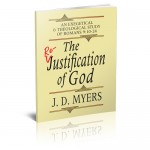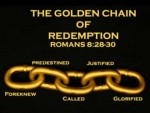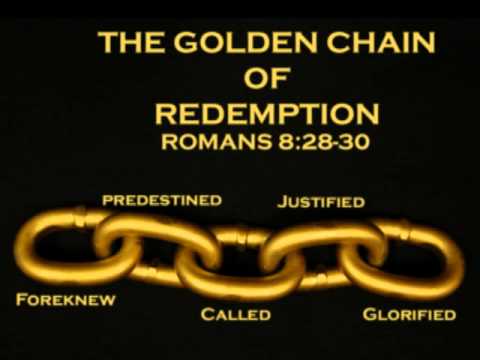People often ask me if I believe in “Once Saved, Always Saved.” They want to know if “Once Saved, Always Saved”is biblical.
I say “No, but I do believe in eternal security.” Once Saved, always Saved is not biblical, but eternal security is biblical.
Is that confusing? Well, let me explain…
Eternal Security and Once Saved, Always Saved
Most people think that eternal security and “Once Saved, Always Saved” are the same thing. They are not. To see this, let us begin with a basic definition of each.
Eternal Security is the belief that once a person has eternal life, they have it forever, no matter what.
Once Saved, Always Saved is the belief that once a person has salvation, they have it forever, no matter what.
Do you see the difference? The only difference between the two definitions is that the first talks about eternal life while the second talks about salvation. Since many Christians think that these two terms are synonymous, they don’t really see much of a difference between eternal security and “once saved, always saved.”

The problem, however, is with the word “salvation” itself.
The Word “Salvation”
As I point out in my online course, The Gospel Dictionary, the word “salvation” very rarely (if ever) is exactly equivalent in Scripture to the term “eternal life.”
The salvation word family (save, saved, salvation, etc.) means “deliverance” and the context determines what kind of deliverance is in view. Deliverance can be from sickness, premature death, enemies, demons, disappointment from God, and a wide variety of other negative experiences (cf. Matt 8:25; 9:22; Mark 5:34; 13:20; Luke 8:48; 23:35; John 12:27; 1 Tim 2:15; 2 Tim 4:18; Jas 5:15; Jude 5).
As such, most forms of “salvation” in the Bible have various conditions attached to them. If a person does not fulfill these conditions, they will not be delivered (or saved) from the negative consequences that follow.
Yet while failing to fulfill the conditions for salvation from sickness, enemies, or premature death might result in experiencing these bad events in life, such things have nothing whatsoever to do with a person’s eternal destiny or their possession of eternal life.
What this means is that as long as the word “saved” is incorrectly equated with eternal life, the concept of “once saved, always saved” can easily be refuted by pointing out the many places in the Bible where people can lose their “salvation” because they don’t obey God or fulfill the conditions of “salvation.”
But once we understand that the salvation word family almost never (if ever) refers to eternal life, the numerous passages that show various conditions for salvation gain theological clarity.
Let us consider a few examples.
James 1:21 and Once Saved, Always Saved
According to James 1:21, people can save their souls by laying aside filthiness and wickedness, and receiving with meekness the implanted word.
If we think that the word “save” in James 1:21 means receiving eternal life, then James 1:21 is teaching that in order to receive and keep eternal life, we must get rid of sin and build our lives upon Scripture. If we do not get rid of sin and if we fail to follow Scripture, then we will not save our souls. In this understanding, there can be no such thing as eternal security.
When, however, we understand that the word “save” means “deliver” and we also recognize that the word “soul” does not refer to the eternal aspect of a person but rather to the life-giving principle within a person, the phrase “save the soul” is best understood as “deliver the life” from premature death (cf. Jas 5:20). This idea fits best in the context as well, where James calls his readers to get rid of sin and become doers of the word rather than hearers only (Jas 1:21-22).
The way to avoid the damaging and destructive consequences of sin in the life of the believer is simply to avoid sin and follow the teachings of Scripture. If you do this, you will deliver your life from the destruction of sin and a premature physical death.

1 Peter 3:21 and Once Saved, Always Saved
Another example is found in 1 Peter 3:21. Here we learn that baptism saves us. So if we think that “saves us” means we receive eternal life, then the clear conclusion is that baptism is a requirement for gaining or keeping our eternal life. If we do not get baptized, then we do not have eternal life.
It is much better, however, to recognize that the word “save” means deliver, and so when Peter writes that baptism saves us, he is saying that baptism delivers us. What does it deliver us from? In the context, Noah and his family were “saved through water” (3:20), which does not mean that the ark gave them eternal life, but that they did not drown in the flood and were delivered from the wickedness and rebellious ways of the people who lived at the time of the flood.
Peter says the same thing can happen to us today (4:3-4) if we live in light of the resurrection. Is Peter telling us how to receive eternal life? No, he is inviting us to avoid the flood of sin and death that comes from lewdness, lust, drunken revelries, and abominable idolatries. Such sins drown out our lives, and we can avoid drowning in sin by recognizing that through baptism (outer water baptism represents the inner reality of Spirit baptism) we have died to sin in Jesus Christ.
Baptism reminds us that we are not slaves to sin but can live free from it. Living this way does not help us earn or keep our eternal life, but it does help us escape the pain and suffering caused by sin.
1 Timothy 4:16 and Once Saved, Always Saved
Then there is 1 Timothy 4:16. According to this text, our salvation is dependent upon how we live our lives and what sort of doctrine we teach and believe. If we fail to take heed of our lives and our doctrine, then we will not be saved.
If the word “saved” refers to eternal life, then Paul is telling Timothy that in order to receive eternal life, he needs to have Godly behavior and beliefs. In other words, keeping eternal life depends on living the right way and believing all the right things. What a scary thought!
If, however, we look in the context, we see a different truth emerge. Paul knows that Timothy feels inadequate to be an elder in the church at Ephesus because he is so young. Paul says that Timothy’s age will not matter if Timothy can give an example to the other Christians in proper behavior and conduct (4:12). If Timothy watches his life and doctrine closely, he will be saved (delivered) from people looking down on him or ignoring him because of his youthfulness.

Salvation is Conditional Upon Good Works. Eternal life is Not.
All of these texts, and numerous others in Scripture, clearly reveal that salvation is conditional upon how we live our lives and what we believe. So if we think that the word “salvation” refers to “eternal life,” then the clear teaching of Scripture is that receiving and keeping eternal life is conditional about believing the right things and behaving in the right way. This is why I say that “once saved, always saved” is not a biblical teaching.
However, eternal security is biblical.
Once we come to understand that the salvation word family almost never (if ever) explicitly refers to eternal life but instead refers to some sort of deliverance from the calamities of life such as danger, suffering, sickness, and premature death, or to some sort of negative experience at the Judgment Seat of Christ, we can readily teach along with Scripture that salvation is conditional upon what we believe and how we behave.
This does not mean, however, that eternal security is also false. Quite to the contrary, there are numerous reasons to believe and teach the biblical truth of eternal security, all of which I cover in my online course.
 Want to learn more about the gospel? Take my new course, "The Gospel According to Scripture."
Want to learn more about the gospel? Take my new course, "The Gospel According to Scripture."
The entire course is free for those who join my online Discipleship group here on RedeemingGod.com. I can't wait to see you inside the course!















 Many Christians believe that these terms refer to “heaven” itself, and more specifically, when Scripture talks of entering or inheriting the Kingdom, that this refers to going to heaven when we die.
Many Christians believe that these terms refer to “heaven” itself, and more specifically, when Scripture talks of entering or inheriting the Kingdom, that this refers to going to heaven when we die.